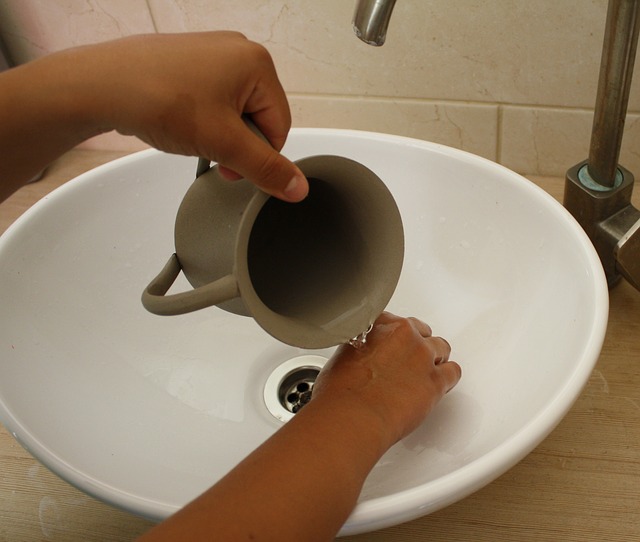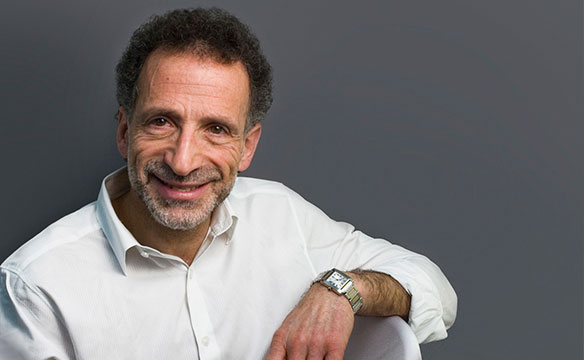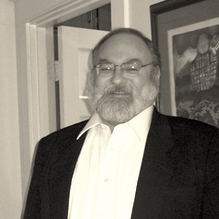
[Ed. Note: This is a reprise from 2014. — JB]
Central to religious practice, rituals may often seem intentionally obtuse, to the point of irrationality. This, in fact may be their very purpose. By devising rituals that at times seem to make little or no sense to the uninitiated, those who learn to perform the rituals – if not understand them, become part of a distinct community. The fact that rituals often don’t make practical or rational sense is exactly what makes them useful for social identification. The cognitive psychologist Christine LeGare has done a number of studies showing that rituals declare that you are a member of a particular social group. Lewis Mumford, the social philosopher, historian, and greatest urbanist of the 20th century, makes a clear case that what sets humans apart from other animals is not the use of tools, but rather our use of language and ritual, and those are what makes us “Community”. Sharing information and ideas among participants was the foundation of all societies, and “community is the most precious collective invention.”
Although there are rituals designed for every aspect of the human life cycle, the rituals surrounding “DEATH” are often the least understood, yet the most often performed. Even the irreligious may insist upon death rituals for themselves or their loved ones. Matthew Frank in his book Preparing the Ghost speaks about “our need to mythologize, ritualize, and spin tales about that which we “fear.”
The greater the lack of comprehension, the increased the amount of the rituals with DEATH, by far the most ritualized of any aspect of a society’s life cycle in every culture. The more rituals there are, the stronger the bonds of community and social identification. The life cycle events the least understood emerge in ritual earlier and are more deeply rooted.
Witness the recent tragic murder of three young Israeli teenagers which bought every dimension of Judaism – and beyond – into a unified community – from the Ultra-Hassidic to Messianics. Everyone adopted and prayed for these young men in accord with the adage ”kol Yisrael Arevim zeh l\L’zeh”, all of us are responsible for one another. Death brought us a sense of unified community as nothing else ever could.
A life broken, an individual link lost, paradoxically strengthens the group unity and identity. Rituals give us a sense of control over an area where we have none. Mundane actions are suffused with arbitrary conventions, and that makes it important to us and gives us a sense of “being in charge”. Rituals engage members of a community in the collective enterprise of building and sustaining a “PEOPLE.”
Jewish death rituals have a foundation that travels back in time 3000 years and has made us a community like none other. In fact, a new developing Jewish community has an obligation to set aside ground for a cemetery before setting aside land for a synagogue. How wise were our Rabbis.
Let us preciously value these so vitally irrational traditions and hoary rituals that bring us together to pray, to improve ourselves, and to elevate ourselves in response to mysteries we don’t comprehend.
Let me conclude by paraphrasing the German poet Rainer M. Rilke in his letters to a young Poet:
“I beg you to have patience with everything unresolved in your heart and try to love the questions themselves as if they were locked rooms or books written in a very foreign tongue. Don’t search for the answers, which could not be given to you now, because you would not be able to live them. And the point is to live everything. Live the questions now. Perhaps then, someday far in the future, you will gradually, without even noticing it, live your way into the answer.”

Isaac Pollak is President and CEO of an international marketing business for almost 4 decades at this point. He holds graduate degrees in Marketing, Industrial Psychology, Art History, and Jewish Material Culture from City College, LIU, JTS, and Columbia University. He has been a student in the Gamliel Institute, and serves as a consultant to the institution. He has been the rosh/head of a Chevrah Kadisha on the upper East Side of Manhattan, NYC, for over 3 decades, and is an avid collector of Chevrah Kadisha material cultural items, having several hundred in his own collection. He serves as chairperson of the Acquisition Committee for Traditional Material Culture at the Jewish Museum in NYC. Born and raised in NYC, married, with 3 children and 3 grandchildren.
___________
GAMLIEL INSTITUTE COURSES
LOOKING FORWARD: UPCOMING COURSE
The Gamliel Institute will be offering course 2, Chevrah Kadisha: Taharah & Shmirah, online, afternoons/evenings, in the Fall semester, starting September 5th, 2017. This is the core course focusing on Taharah and Shmirah ritual, liturgy, practical matters, how-to, and what it means.
CLASS SESSIONS
The course will meet online for twelve Tuesdays (the day will be adjusted in any weeks with Jewish holidays during this course).
There is a Free Preview/Overview of the course being offered on Monday August 14th at 5 pm PDST/8 pm EDST. You are welcome to join us to decide if this course is one in which you would like to enroll. Contact info@jewish-funerals.org or j.blair@jewish-funerals.org for information on how to connect to the preview webinar.
There will be an orientation session on how to use the online platform and access the materials on Monday, September 4th, 2017, at 5 pm PDST/8 pm EDST online. Register or contact us for more information.
Information on attending the online orientation and course will be sent to those registered.
REGISTRATION
You can register for any Gamliel Institute course online at jewish-funerals.org/gamreg. A full description of all of the courses is found there.
For more information, visit the Gamliel Institute website, or at the Kavod v’Nichum website. Please contact us for information or assistance by email info@jewish-funerals.org, or phone at 410-733-3700.
____________________
Gamliel Café
Gamliel Students are invited to an informal online monthly session on the 3rd Wednedsays of most months. Each month, a different person will offer a short teaching or share some thoughts on a topic of interest to them, and those who are online will have a chance to respond, share their own stories and information, and build our Gamliel Institute community connections. This initiative is being headed up by Rena Boroditsky and Rick Light. You should receive email reminders monthly.
If you are interested in offering a teaching, you can contact us at j.blair@jewish-funerals.org, or info@jewish-funerals.org.
____________________
Gamliel Graduate Courses
Graduates of the Gamliel Institute, and Gamliel students who have complete three or more Gamliel Institute courses are invited to be on the lookout for information on a series of “Graduate’ Courses, advanced sessions focusing in on different topics. These will be in groups of three sessions each quarter (in three consecutive weeks), with different topics addressed in each series. The goal is to look at these topics in more depth than possible during the core courses. The first two series tentatively planned will be on Psalms and on the Death & the Zohar. Registration will be required, and there will be a tuition charge to attend (more information to be sent soon). Heading this intiative is the dynamic duo of Rena Boroditsky and Rick Light. Contact them, register at www.jewish-funerals.org/gamreg/, or email info@jewish-funerals.org.
_____________________
DONATIONS
Donations are always needed and most welcome to support the work of Kavod v’Nichum and the Gamliel Institute, helping us to bring you the conference, offer community trainings, provide scholarships to students, refurbish and update course materials, expand our teaching, support programs such as Taste of Gamliel, the Gamliel Café, and the Gamliel Gracuates courses, provide and add to online resources, encourage and support communities in establishing, training, and improving their Chevrah Kadisha, and assist with many other programs and activities.
You can donate online at http://jewish-funerals.org/gamliel-institute-financial-support or by snail mail to: either Kavod v’Nichum, or to The Gamliel Institute, both c/o David Zinner, Executive Director, Kavod v’Nichum, 8112 Sea Water Path, Columbia, MD 21045. Kavod v’Nichum [and the Gamliel Institute] is a recognized and registered 501(c)(3) organization, and donations may be tax-deductible to the full extent provided by law. Call 410-733-3700 if you have any questions or want to know more about supporting Kavod v’Nichum or the Gamliel Institute.
You can also become a member (Individual or Group) of Kavod v’Nichum to help support our work. Click here (http://www.jewish-funerals.org/money/).
___________
MORE INFORMATION
If you would like to receive the periodic Kavod v’Nichum Newsletter by email, or be added to the Kavod v’Nichum Chevrah Kadisha & Jewish Cemetery email discussion list, please be in touch and let us know at info@jewish-funerals.org.
You can also be sent a regular email link to the Expired And Inspired blog by sending a message requesting to be added to the distribution list to j.blair@jewish-funerals.org.
Be sure to check out the Kavod V’Nichum website at www.jewish-funerals.org, and for information on the Gamliel Institute, courses planned, and student work in this field also visit the Gamliel.Institute website.
RECEIVE NOTICES WHEN THIS BLOG IS UPDATED!
Sign up on our Facebook Group page: just search for and LIKE Chevra Kadisha sponsored by Kavod vNichum, or follow our Twitter feed @chevra_kadisha.
____________________
SUBMISSIONS ALWAYS WELCOME
If you have an idea for an entry you would like to submit to this blog, please be in touch. Email J.blair@jewish-funerals.org. We are always interested in original unpublished materials that would be of interest to our readers, relating to the broad topics surrounding the continuum of Jewish preparation, planning, rituals, rites, customs, practices, activities, and celebrations approaching the end of life, at the time of death, during the funeral, in the grief and mourning process, and in comforting those dying and those mourning, as well as the actions and work of those who address those needs, including those serving in Bikkur Cholim, Caring Committees, the Chevrah Kadisha, as Shomrim, funeral providers, in funeral homes and mortuaries, and operators and maintainers of cemeteries.
_____________________























 More news and opinions than at a Shabbat dinner, right in your inbox.
More news and opinions than at a Shabbat dinner, right in your inbox.